March 2021 to February 2025
Sikai – meaning learning in Nepali - is an inclusive education project that addresses the socio-cultural and political barriers faced by marginalised children in accessing basic education.
The project supports children to successfully transition from grade five to grade six at school and improve learning outcomes.
The issue
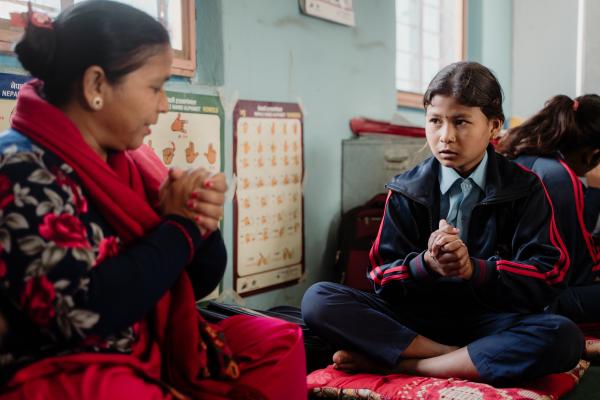
The Nepal government has put priority on achieving quality and inclusive education with a key focus on enhancing access, equity, quality and management efficiency. Progress in school enrolment is impressive at the primary level where the net enrolment ratio achieved 97 %.1 However, 14% of girls (between age 10 to 17) are still out of school and ensuring quality of education is still a big challenge for the country.
Rural and poor children have school completion rates far below the national average. Out of 10 children who were enrolled in grade one, only six children reach grade ten.2
They also face additional barriers in accessing education, from harmful social norms and practices, inadequate implementation of inclusive education policies and capacity issues at schools. Children from rural areas are also more likely to have to travel long distances to attend school.
The population of Baglung district, where the project is implemented, is a mix group of ethnic groups, castes and religions. Poverty in Baglung is widespread with 23% of people falling below the poverty line.
The project has planned multiple interventions targeting parents or caregivers, school children, education service providers and duty bearers in order to reach 7,200 students.
We will reach
7,200 students
660 teachers
720 parents and guardians
The project was designed in co-creation with the local government to boost children’s enrolment in schools, improve learning achievements and contribute to retention, attainment, and transition from grade five to 6. The project targets 60 schools across Jaimini and Kathekhola municipality of Baglung district of Gandaki province.
Specific outcomes of the project are:
- Parents/ caregivers of marginalised girls and boys support their children’s learning and education
- School children (girls and boys) have access to gender, child-friendly and responsive teaching practices in a safer learning environment.
- Students receive learning support to increase numeracy and literacy scores.
- Teachers practice inclusive, child-friendly, gender responsive and technology-based pedagogy universal design for learning approach.
- Education service providers and duty bearers implement inclusive, child friendly and gender responsive policies.
- Local government and schools have updated their plan ensuring inclusion, gender responsive, child-protection and safeguarding policies and programs.
How the project works.
Increasing parental support for education
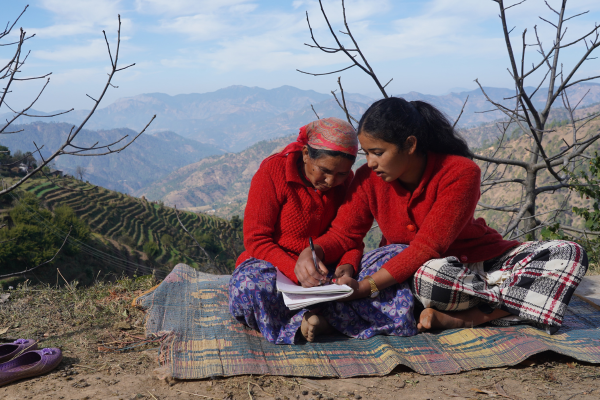
Through these interactive sessions, parents are sensitized about the critical role they play in creating a productive learning environment for their children home as well as in schools.
Volunteers have raised parents' awareness on violence, discrimination, and harmful practices, including child marriage, assisting them to overcome these barriers and promoting parental involvement in their children's learning journey. Big Sisters have been doing door-to-door visits to aware parents on the importance of education.
Improving child literacy and numeracy levels
Children are offered learning support to increase numeracy and literacy scores at home and in school. Big Sisters support students with homework and encourage parents to engage more in their children’s learning. In addition, students are provided with extra classes for mathematics and literacy for two and half months, with the objective of improving learning outcomes of students with poor numeracy and literacy scores.
Adopting inclusive teaching practices
Improving the capacity of teachers is vital in ensuring quality education. The project is enhancing the knowledge, skills, and capacity of teachers to enable them to deliver inclusive and quality education. Several training courses such as teacher training on the use of ICT, and inclusive education have been delivered to teachers.
Supporting governments and schools in child protection and safeguarding
Stakeholders and project teams are collaborating closely to update policies and plans in line with the project learnings. Specifically, the project has developed a local curriculum guideline on Girls and Inclusive Education Network and School Improvement Plan. In these policies and plans, the effort has been made to include key aspects of inclusion, child protection and safeguarding.
Our volunteering for development approach
The project uses VSO’s volunteering for development approach, placing volunteers from local communities to work alongside youth volunteers as well as local and international experts. Over 600 volunteers have contributed to the Sikai project.
Big Sisters
VSO’s volunteer Big Sisters are mentors who provide peer-to-peer mentoring, counselling, regular home visits and tailored solutions to barriers faced by parents and caregivers.
Big Sisters emphasise the importance of regular school attendance to parents, keeping regular contact with them and their children to keep track of their school performance and attendance. Big Sisters also help with assessing the financial needs of families and can help parents to acquire essential school supplies such as books and uniforms.
The Big Sisters are selected from the same community and come from similar backgrounds as their mentee Little Sisters meaning they can empathise and relate to issues their Little Sisters are facing. This approach also puts local women at the forefront of community development.
Big Sisters play a major role in supporting the youth volunteer network members to conduct community level awareness and advocacy campaigns.
The presence of Big Sisters has been instrumental in engaging students. They are respected members of the community who support parents, children and local governments in their schooling journey. Big Sisters also work to enhance learning environments in schools, improving school infrastructure for inclusive education and enhancing the policy framework and service delivery in rural municipalities.
Community and youth volunteers
Community youth volunteer network members conduct awareness campaigns in the community, resulting in a significant and widespread impact. These volunteers belong to the same community and are aware of local issues and attitudes, therefore are best placed to advocate for change.
From advocating for gender equality to promoting environmental sustainability, these youth-run campaigns serve as catalysts for progress and unity within the community. As they continue to mobilize and engage with locals, the community youth volunteer network members play a pivotal role in driving positive social transformation and fostering a more informed and empowered society.
They work together with the Big Sisters and are actively engaged in community level campaigns for raising awareness on harmful traditional norms and practices for social transformation. They also work alongside governments to create systematic change.
National volunteers
National volunteers support implementing partners including schools, local service providers and community leaders to improve literacy and numeracy levels of marginalised children.
They also support teachers to develop their professional competencies. National volunteers provide mentoring and coaching support to the teachers, and community volunteers on quality teaching learning process. They also facilitate training sessions as per the project plans, objectives and deliverables.
International volunteers
International volunteers support partners to ensure the effective coordination and capacity building of teachers through mentoring and coaching. They also support local governments and education and school authorities in designing and implementing child, disability and gender friendly teaching practices.

SIKAI is funded by the Hempel Foundation and is implemented by VSO together with implementing partner BYC in Baglung.
Footnotes
- Flash report, 2023, CEHRD.
- Flash report, 2023, CEHRD.
Related links
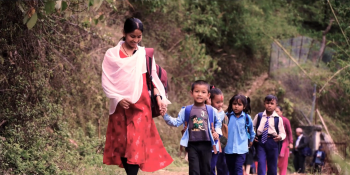
A brighter future: the volunteers helping girls stay in school
Watch how volunteer "Big Sisters," like Nirmala, are helping to ensure children in Nepal have the best start in life by highlighting the importance of education to their parents.
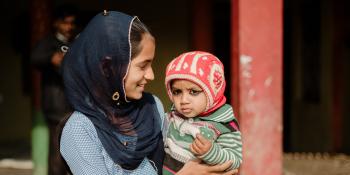
Nepal
We've worked in Nepal since 1964, building healthy communities, strengthening inclusive education systems, and developing community resilience.
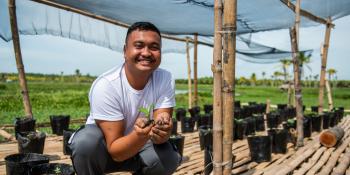
Our projects
VSO runs a vast range of projects spanning our three global programmes; resilient livelihoods, inclusive education and healthy communities.
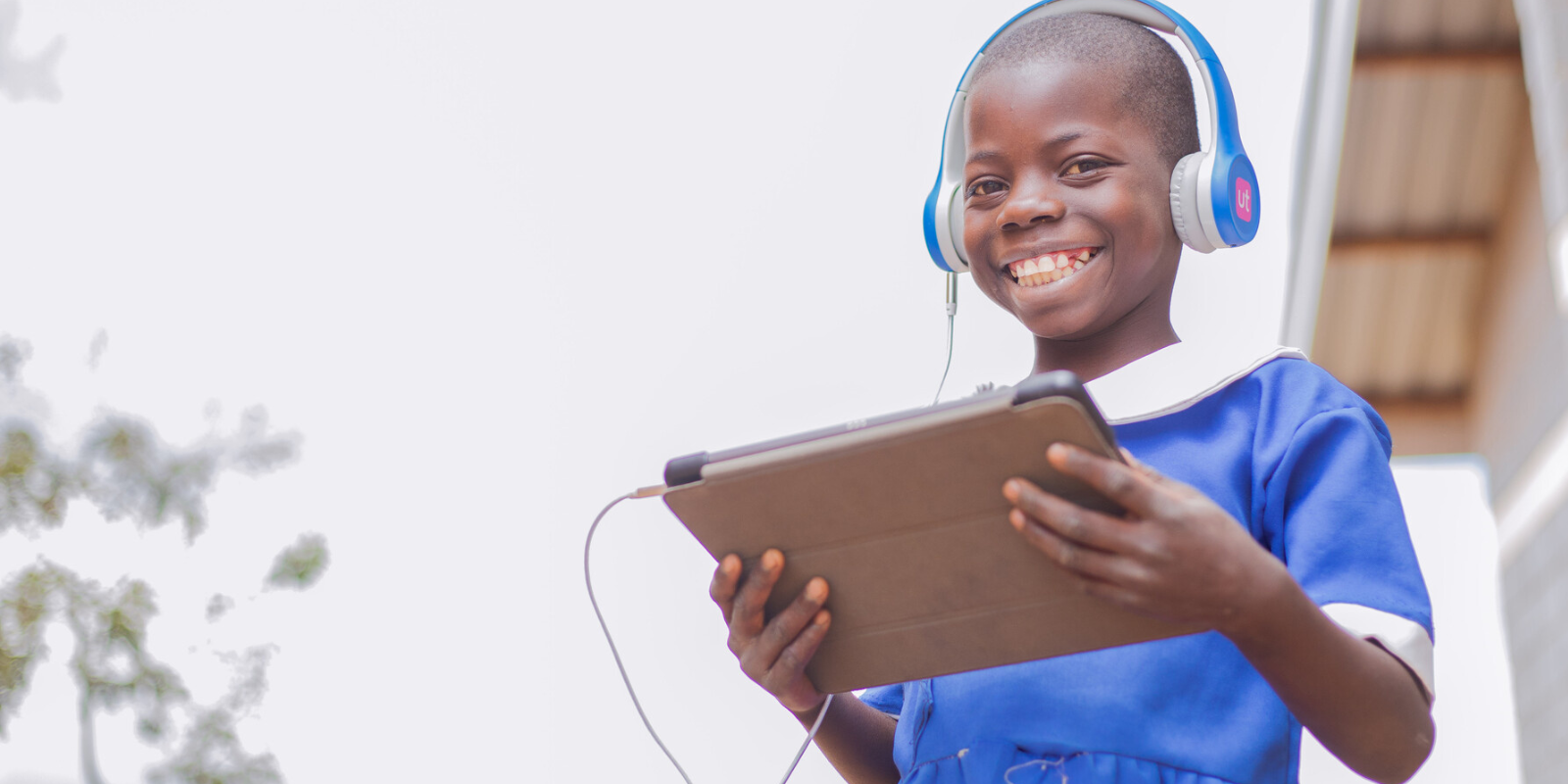
Support us with a donation
